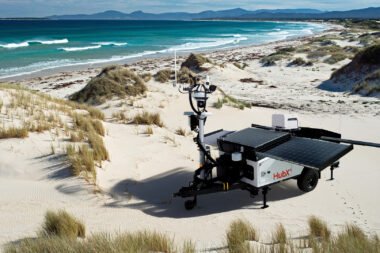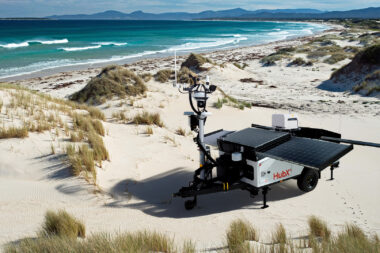EMBARGOED UNTIL 00:01 SEPTEMBER, 16th 2024
Australian Red Cross EmergencyRedi Week 16-22 September 2024
Australian families are being urged to get prepared this EmergencyRedi Week with new data showing an increase in prevalence and intensity of emergencies, yet only one in three (34%) households have talked to their children about being practically prepared, and even less (27%) about how to mentally prepare.
The annual independent survey of 1,000 Australian adults across the country showed an increase in people experiencing heatwaves (50% to 51%) and major power outages (46% to 51%) over the last six years. In just the first three months of this year alone, Australian Red Cross respond to emergencies in every state and territory, highlighting the growing frequency and impact of extreme weather events across Australia.
The survey data comes as Australian Red Cross reminds Australians that being practically and psychologically prepared before disaster strikes, improves your ability to respond and recover.
Newly appointed Australian Red Cross CEO Andrew Colvin has been on the frontline of major national disasters and emergencies throughout his career. Having seen first-hand the devastating and persistent impacts on families and communities he reiterated the importance of emergency preparedness for everyone, particularly those living in high-risk areas.
“Our research and experience shows the impacts of emergencies can be profound with long lasting psychological and emotional implications – and children by nature are extremely vulnerable.
“Being prepared practically and psychologically before disaster strikes strengthens resilience and lowers the post-disaster emotional impact experienced. With extreme weather events becoming more frequent and intense, it’s critical that families are not complacent, and they get prepared ahead of time,” he said.
The survey also showed despite low levels of active preparation by families, there was a willingness from parents (55%) to find more information about how to talk to their children about preparing for emergencies in a way that would calm them and make them feel safe.
“Parents are right to want to educate their children without causing anxiety and alarm. Having the conversation about what to do in the event of an emergency in a considered way will help manage any fears and will also help provide children with a greater sense of control.
“Many children have the ability to provide invaluable help to their families in the event of an emergency so planning collaboratively as a family has many benefits,” he said.
Each September, Australian Red Cross reminds all Australians of the importance of being prepared and encourages people to take action by completing an emergency RediPlan, an internationally recognised disaster preparedness guide that provides easy to follow steps to prepare both practically and psychologically for any type of emergency.
Mr Colvin pointed to signs of ‘emergency fatigue’ in the data with 41% of respondents admitting they haven’t spent much time thinking about preparedness.
“Australians need to remember that emergencies can happen anywhere at any time - and to anyone. In Australia where we often experience the full force of mother nature, we can’t afford to be complacent about being prepared ahead of time.
“Adequate preparations enable you to think and act more clearly, giving you and your family the best possible chance of protecting what matters most to you, and coping in the aftermath of what can be quite a traumatic event,” he said.
There are a number of ways Australians can get prepared this month including:
- making an emergency RediPlan available at redcross.org.au/emergencies/resources
- attending an EmergencyRedi workshop (see event list on redcross.org.au)
- downloading the free Get Prepared App (co-created with NRMA Insurance) from Apple store or Google Play
As part of EmergencyRedi Week, Australia Post is also delivering a ‘Prepare’ flyer featuring key preparedness tips to more than 3 million households in over 200 high-risk local government areas across Australia, including Lismore (NSW), Ballarat (VIC), Bundaberg (QLD), Port Headland (WA).
About us:
About the research
The research was conducted by Mevcorp Research in July 2024 via a 5-10 minute online survey among a representative sample of 1000 Australians 18+. Mevcorp has been tracking insight into how prepared different types of Australians are for disasters and emergencies and what, if any steps are being taken to prepare since 2014.
Note: Further images and interviews with Australian Red Cross representatives available upon request.
Contact details:
For media inquiries, case study and interview requests please contact:
Jo Karabin via [email protected] or 1800 733 443


